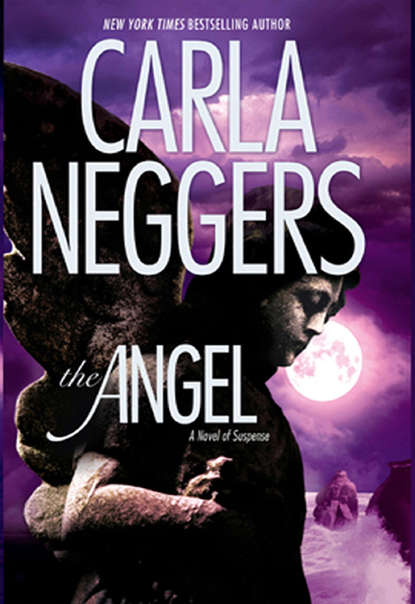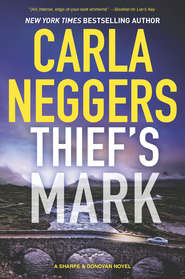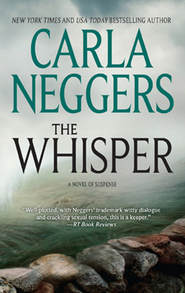По всем вопросам обращайтесь на: info@litportal.ru
(©) 2003-2024.
✖
The Angel
Автор
Год написания книги
2019
Настройки чтения
Размер шрифта
Высота строк
Поля
“Nothing.” He yawned—deliberately, Abigail thought—and did a couple of shoulder rolls, as if he needed to loosen up. “I should get back. When you see Owen, thank him for giving Fiona a ride home for me.”
“Sure, Bob. I’m sorry Keira got here when she did. It’s not an easy thing, coming upon a body.”
“Fiona wants to spend a week in Ireland with Keira visiting pubs and playing music. Can you imagine the two of them?” He wrinkled up his face and blew out a breath. “Fiona keeps telling me I worry too much. Maybe I do. I don’t even like her taking the subway alone, never mind getting on a plane to Ireland by herself.”
“She takes the subway all the time. She’s a music student. She’s got lessons, ensemble practice.”
“Plays the freaking harp. You believe I have a daughter majoring in harp?” He rubbed the back of his neck as if he were in pain. “And I have a niece who paints pictures of fairies and wildflowers and collects loony stories people tell by the fire.”
“They’re both incredibly talented, and Keira’s successful in a highly competitive business. Plus, they both get along with you, which is saying something.”
Bob let his hand drop to his side. “Wait’ll you have kids.”
His words were like a gut punch, and Abigail looked away quickly, muttering a good-night and making a beeline for the crime scene guys, thinking of something she could ask them. Anything. Didn’t matter what. She didn’t want Bob to see her expression, to wonder what demons were haunting her now.
This was private, damn it. Personal. Up to her and her alone to figure out.
Kids.
She pictured herself with a big belly, Owen with a toddler on his shoulders—the three of them in the Public Garden on a beautiful June day. But it was a fantasy. Reality was so much more complicated. She and Owen weren’t even married yet, and babies would change her life, change his life.
Abigail turned her attention back to the pond. What had brought Victor Sarakis to Boston tonight? Never mind her mood or Bob’s mood, it was a question that needed an answer.
She spotted a crime scene guy she recognized. What was his name? She couldn’t remember. He was new. Really young. Grew up on a tough street in Roxbury.
“Malcolm,” she whispered, then raised her voice, calling to him. “Malcolm—hang on a second.”
“Yes, Detective?”
She glanced back at Bob, who pointed a finger at her and shook it—his way of telling her he knew what she was up to and would be watching.
Malcolm frowned at her. Abigail pointed to the sidewalk. “I just want to make sure we get photos of any cracks in the walks that could trip a guy running in the rain.”
“Of course. No problem.”
“Thanks.”
Bob continued across the picturesque mini suspension bridge over the pond. With a sigh of relief, Abigail studied the spot where Victor Sarakis had come to the end of his life. There was no fence on this section of the pond. If he’d tripped—or whatever—on the opposite bank, the knee-high cable fence could have broken his fall, perhaps kept him from drowning. But the water was so shallow—he must have been unconscious, otherwise why didn’t he just get up?
The autopsy would tell her more, but she had to agree with Bob and the medical examiner that Victor Sarakis’s untimely death was likely an accident.
In the meantime, she had work to do, and a long night ahead of her.
She touched her cell phone, but decided—no. Owen already knew she had a case and would be back to her place late. He had an early start in the morning for a Fast Rescue meeting in Austin. He was always on the go—Austin, Boston, his place in Maine, disaster sites and training facilities all over the world.
Let him get to bed, Abigail thought, and not worry about her. She wouldn’t want him to hear anything in her voice that would tell him she was gnawing on a worry, a problem. Because he’d ask her to explain, and she wasn’t sure she could. Whatever was going on with her wasn’t about him. It was about her.
And in those long years after Chris’s death, she’d grown accustomed to working out her issues on her own.
She wondered if Victor Sarakis had left behind any children, but pushed the thought out of her mind as she joined Malcolm in looking for cracks in the walks.
Chapter 6
Logan International Airport
Boston, Massachusetts
10:00 a.m., EDT
June 18
FBI Director John March greeted Simon with a curt handshake in an ultraprivate VIP lounge at Boston’s Logan Airport. March had flown up from Washington, D.C., that morning specifically for this meeting. He had an entourage of hulking FBI special agents and staffers with him, but they stayed out in the hall.
He was sixtiesh and trim, and although his hair was iron-gray, its curls reminded Simon of March’s daughter, Abigail. But March wouldn’t be seeing her today. He wouldn’t risk it. Simon knew it wasn’t just that March was protecting a classified mission. He didn’t want to have to explain his complicated history with the Cahills to a daughter—a cop daughter, no less—who knew nothing about it. It didn’t have to be a secret. It just was one.
“Some days, Simon,” the FBI director said, “I wish you’d decided to become a plumber.”
“If it’s any consolation, some days I wish I had, too.” Simon had been fourteen, crying over his father’s casket at a proper Irish wake in the heart of Georgetown when he’d first met March. “At least when you’re a plumber and you’re knee-deep in crap, no one tries to convince you it’s gravy.”
“I’ve put you in a difficult position.”
“I put myself there. You’re just capitalizing on it. That’s your job. I’m not holding it against you.”
“My daughter will.” March’s tone didn’t change from its unemotional, careful professionalism. “I’ve kept too many secrets from her as it is.”
Simon thought he detected a note of regret in the older man’s tone, but maybe not. Simon didn’t have the details, but apparently John March had known more about the circumstances surrounding the murder of his daughter’s first husband, an FBI special agent, than he’d let on. Nothing that would have led to his killer any sooner. But Abigail didn’t necessarily see it that way.
“Comes with the territory,” Simon said without much sympathy.
He hadn’t asked for March’s help all those years ago, when the then FBI special agent was wracked with grief and guilt after failing to stop the execution of Brendan Cahill, a DEA agent and friend, in Colombia. But there was nothing March could have done. The killers had videotaped themselves. The video showed them tying up Simon’s father. Blindfolding him. Firing two bullets into his forehead. Simon had seen the tape. For years, he thought he’d stumbled onto it—that he’d been clever, outwitting the brilliant, powerful John March. He was over that illusion now. March had arranged for Simon to find the tape and see his father’s murder.
Instead of feeling angry, bitter and betrayed, Simon had felt understood. March had known that once Brendan Cahill’s young son had realized the tape existed, he’d find a way to see it.
What Simon hadn’t realized, until recently, was that March had never mentioned him or his father to his daughter. Not once in twenty years.
He was a hard man to figure out.
March stayed on his feet. “I’ve told you as much as I know about what comes next.”
Simon doubted that, but he shrugged. “Great. I’ll be in London cooling my heels.”
“We’ve got him, Simon. We’ve got Estabrook, thanks to you.”
With a little luck, the “thanks to you” part would stay between Simon and March, but Simon had learned not to count on luck. “I’ll feel better when he’s in custody.”
“Understood.”
Simon could sense March’s awkwardness. Ordinarily he would keep his focus on the big picture and not concern himself with what a mission meant for Simon personally. But this mission was different. Eighteen months ago, Simon had left the FBI and started a new life—volunteering for Fast Rescue, making a living helping businesses and individuals plan for disasters. It wasn’t a bad life. He had a good reputation, a decent income and the kind of freedom he’d never had as a federal agent.











